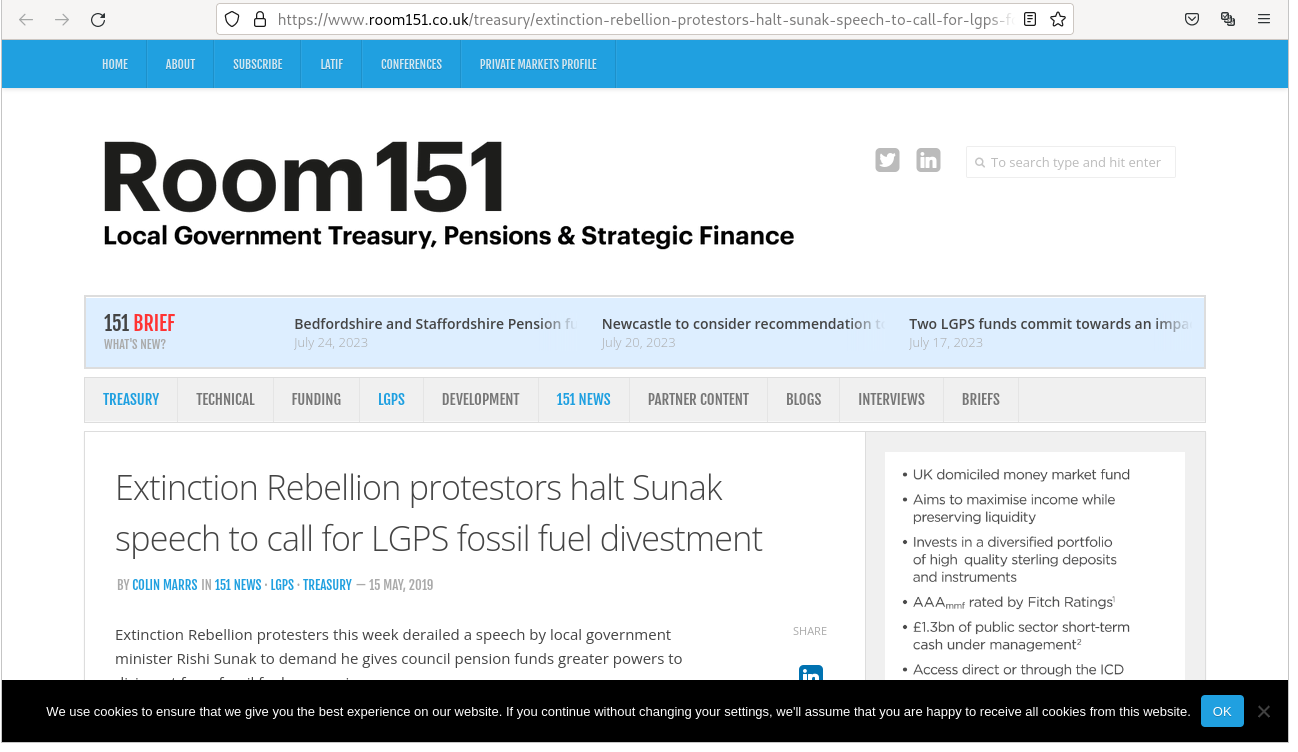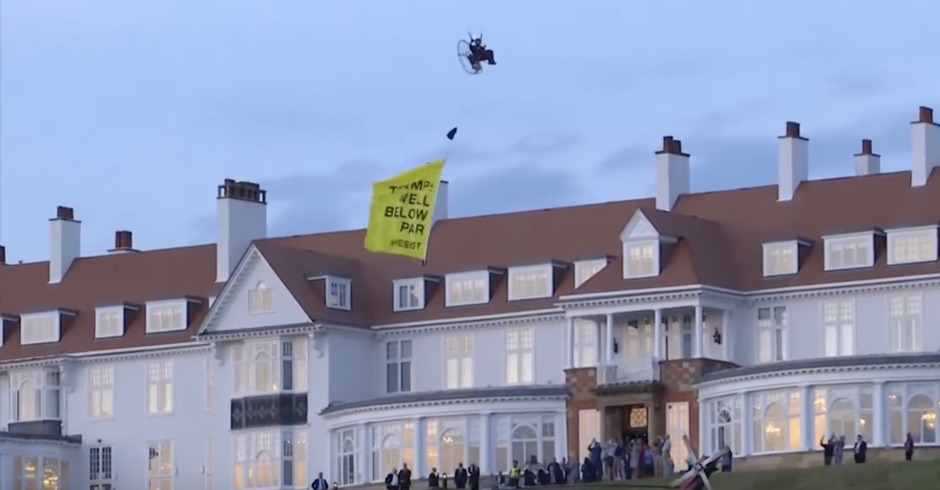Conflicts of Interest: Extinction Rebellion & Rishi Sunak, Greenpeace & Donald Trump
There have been many rumors about conflicts of interest in the Debian Google Summer of Code and Outreachy internships. The only case where evidence has appeared is the former leader himself, the very person who started rumors about other mentors and I included.
Yet conflicts of interest can come in many forms. One of the most bizarre cases I've seen was a pensions industry meeting in the UK.
Representatives of pension administrators and government officials gathered in the town of Swindon. Rishi Sunak, who has recently become Prime Minister, attended the meeting in his former role as local authorities minister.
According to reports, early in the meeting, a group of five Extinction Rebellion protesters got into the venue and began to make a disturbance, unfurling a banner while Mr Sunak was speaking. Rather than having them ejected by security, the chair of the meeting encouraged them to stay and promised them that one of their group could ask questions at the end.
The authority from the chair and Mr Sunak, the speaker, appears to have been respected. The protesters stopped making a disturbance. One of them departed early. They seated themselves and waited patiently for the question and answer opportunity. In many ways, it looks like a model of democracy: everybody in the room may benefit from a more diverse question and answer session. At the same time, it has added to Mr Sunak's image as somebody who is not afraid of a crowd.
There is only one problem: the protesters have a conflict of interest. The biggest financial supporter of Extinction Rebellion is Chris Hohn. Hohn reportedly gives this group £200,000 every year. Mr Sunak began his career working in Hohn's hedge fund.
Therefore, you can only wonder if the protest was gifted to Mr Sunak in one way or another.
Even if the protest had been choreographed in this way, I still feel that Mr Sunak has set a good exmaple by not overreacting or having these people locked up. This is one way that the UK can distinguish itself from regimes where activists simply disappear.

Donald Trump & Greenpeace publicity stunt
A more audacious example of this phenomena was the Greenpeace protest at Trump's resort in Scotland.
The Greenpeace protester successfully got airborne and flew a banner past the gabled facade of the Turnberry resort.
Many people scratched their heads wondering why the US Secret Service had not immediately shot down the protester.
Virtually all major news outlets showed the image of the protester juxtaposed against the iconic facade of Trump's five star resort. In the UK, the image was on every newstand the next morning.
This was priceless publicity for the resort. Nobody saw the face of ex-President Trump or the Greenpeace activist. People who didn't bother to read the news report would have simply seen the image of the resort itself.
Did Trump do a deal with Greenpeace to allow this protester, knowing that no money could buy that amount of publicity for his privately owned resort?
If such a deal was to be exposed, it would probably be the least of his worries right now.
